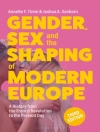Histories of voice are often written as accounts of greatness: great statesmen, notable rebels, grands discours, and famous exceptional speakers and singers populate our shelves. This focus on the great and exceptional has not only led to disproportionate attention to a small subset of historical actors (powerful, white, western men and the occasional token woman), but also obscures the broad range of vocal practices that have informed, co-created and given meaning to human lives and interactions in the past. For most historical actors, life did not consist of grand public speeches, but of private conversations, intimate whispers, hot gossip or interminable quarrels.
This volume suggests an extended practice of eavesdropping: rather than listening out for exceptional voices, it listens in on the more mundane aspects of vocality, including speech and song, but also less formalized shouts, hisses, noises and silences. Ranging from the Scottish highlands to China, from the bedroom to the platform, and from the 18th until the 20th century, contributions to this volume seek out spaces and moments that have been documented idiosyncratically or with difficulty, and where the voice and its sounds can be of particular salience. In doing so, the volume argues for a heightened attention to who speaks, and whose voices resound in history, but refuses to take the modern equation between speech and presence/representation for granted.
Giới thiệu về tác giả
Josephine Hoegaerts, University of Helsinki, Finland; Janice Schroeder, Carleton University, Canada.












